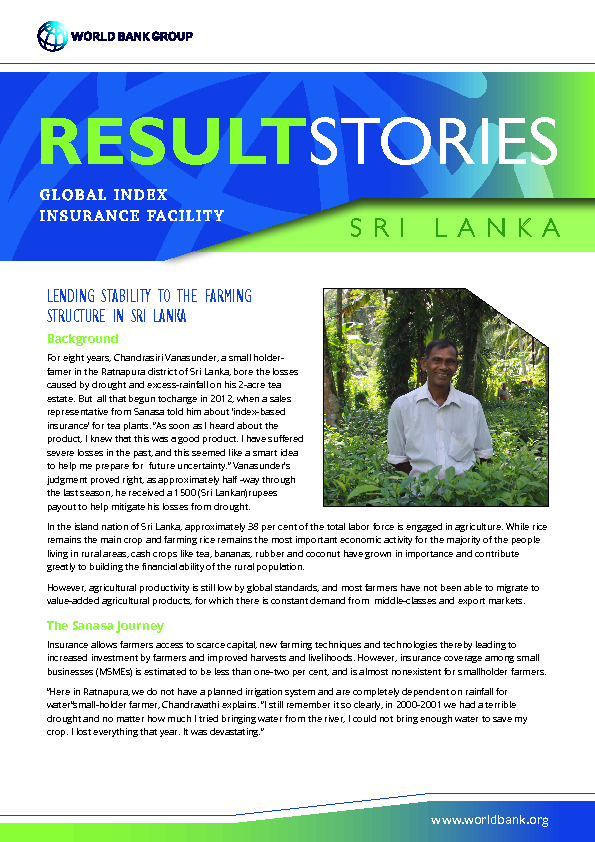
Content owner:
GIIF - World Bank Group
Topics:
For eight years, Chandrasiri Vanasunder, a small holderfamer in the Ratnapura district of Sri Lanka, bore the losses caused by drought and excess-rainfall on his 2-acre tea estate. But all that begun tochange in 2012, when a sales representative from Sanasa told him about ‘index-based insurance’ for tea plants. “As soon as I heard about the product, I knew that this was a good product. I have suffered severe losses in the past, and this seemed like a smart idea to help me prepare for future uncertainty.” Vanasunder’s judgment proved right, as approximately half -way through the last season,...






